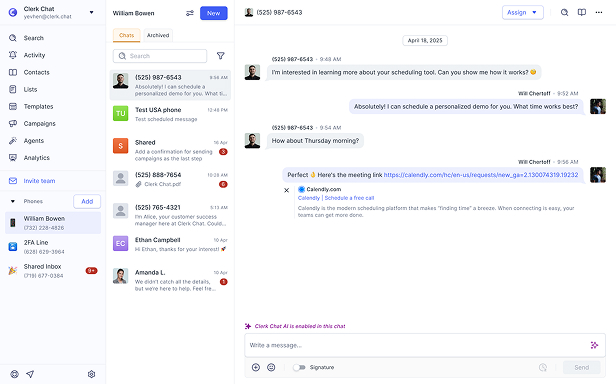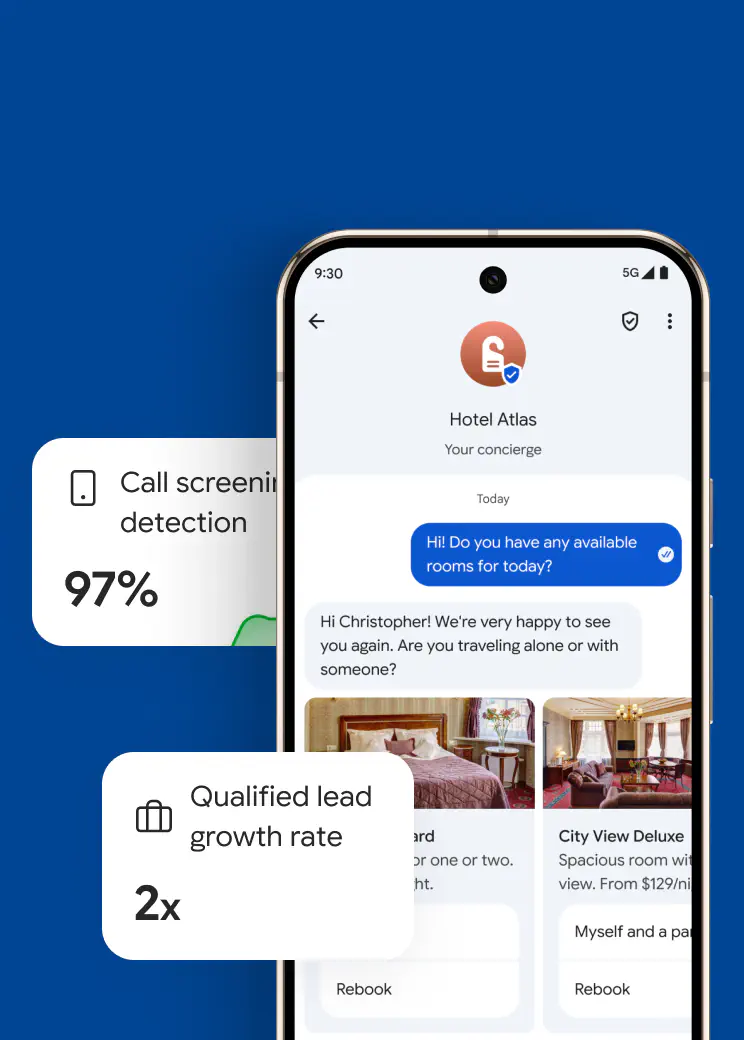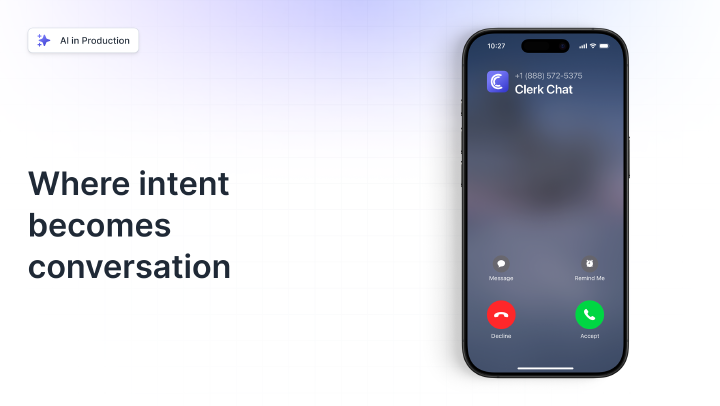- Case Studies
/
- How Clerk Chat’s own AI agent deflected 93% of support
How Clerk Chat’s own AI agent deflected 93% of support

93%
Deflection Rate
+50%
Faster Resolution
The Challange
At Clerk Chat, we strive to make customer communication seamless - for both our team and our customers. But internally, our own support team was overwhelmed. As our customer base grew, our support volume did too - with thousands of recurring questions about onboarding, porting numbers, 10DLC campaign registration, SMS carrier compliance, and platform usage.
Despite having documentation and Zendesk macros, prewritten responses for common questions, the support load remained heavy. New hires often spent weeks getting up to speed, and scaling support required more headcount - something we wanted to avoid.
So we turned the challenge inward: could our own AI handle customer questions better than macros and faster than a human?
The Solution
We deployed a Clerk Chat voice + messaging AI agent, trained on our internal knowledge base, public documentation, and live voice and text conversations. It could answer questions 24/7 — from “How do I register a 10DLC campaign?” to “Why is my number not sending SMS?”
We integrated it into:
- SMS + RCS
- Phone calls
Beyond answering questions the agent could trigger workflows, check porting status, pull carrier feedback, and even surface onboarding links.
It wasn’t just an FAQ bot. It understood nuance - like how to explain why a campaign failed CTIA review, or how to guide users through external brand vetting.
How support sees it
We route incoming support messages, across SMS, RCS, Voice, and email, straight into Zendesk, the hub where our support team operates.
Instead of jumping between platforms, each support representative gets a clear, concise view of each issue. No duplicate work. No scattered threads. Just one streamlined, efficient workflow.
Training the AI agent like a support lead
On a weekly cadence, we extract tickets from Zendesk and run them through our AI classifier. This generates tags, categories, and a detailed timeline of actions taken by both support and customers from problem identification to resolution. These insights form a step-by-step playbook that guides our AI agent’s responses.
Each ticket is stored as a vector in our AI knowledge base. For every new incoming ticket, the AI searches this vector database to find relevant precedents, then drafts email responses or requests intervention from the support team as needed. The AI functions as a co-collaborator, leveraging support’s collective expertise efficiently.
We understand that context has the most power over an agent’s output. We obsess over what knowledge we deliver to our agent at each moment. This leads to an AI that operates with the same experience and context as one of our support leads - an AI you truly want to work with.
The Results
- 93% deflection rate: Only 1 out of 10 conversations made it to a human.
- 50% faster resolution: When support did step in, the AI had already filled in the context.
- Zero headcount increase: Even with 3x growth in user volume.
It wasn’t about saving money, it was about team sanity. Now, our support agents focus on edge cases and VIP customers, not password resets and porting timelines.
The impact
We’ve become our own best case study. By using our AI to handle internal support, we:
- Reduced burnout for support agents
- Cut onboarding time for new hires
- Created a living, learning assistant that stays up to date with new playbooks and compliance changes
And it keeps getting better. Today, that same agent powers support for everyone from solo founders to enterprise clients.
Industry
Features Used:
Integrations Used:



